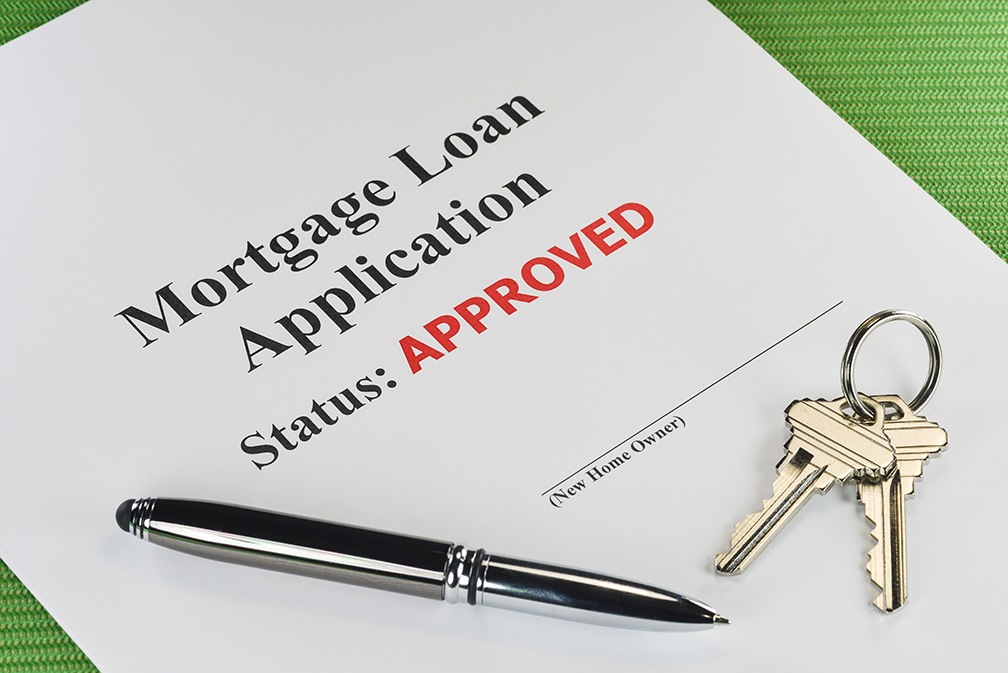 Buying a home involves a variety of nuances and strange-sounding terms, and one of the least understood aspects of the home buying process is the escrow account. Essentially, an escrow account is a third party bank account your lender can require you to pay into in order to cover certain costs related to your home. Your lender uses an escrow account to ensure that property taxes and home insurance fees get paid on time.
Buying a home involves a variety of nuances and strange-sounding terms, and one of the least understood aspects of the home buying process is the escrow account. Essentially, an escrow account is a third party bank account your lender can require you to pay into in order to cover certain costs related to your home. Your lender uses an escrow account to ensure that property taxes and home insurance fees get paid on time.
But how exactly do escrow accounts work? Here’s what you need to know.
Escrow Accounts Are Mandatory With Certain Mortgages
Not all home buyers are required to have an escrow account. In cases where the buyer pays 20 percent of the purchase price down, lenders will typically waive the escrow, as the buyer has proven liquid assets that can be used to pay property-related fees. But depending on your type of mortgage, you might be required to have an escrow account.
If you bought your home with an FHA loan, you must have an escrow account. Similarly, if your down payment is less than 20 percent, you’ll most likely be required to have an escrow account.
You Can Choose To Pay A Lump Sum Or A Monthly Fee
As your lender uses your escrow account to pay property fees, you’ll need to ensure the account has the available funds to cover taxes and insurance. Typically, your lender will provide you with a set of payment options to keep the account topped up. You may be able to choose whether to pay your escrow fees in an annual lump sum or in 12 equal payments throughout the year, however paying monthly is the most common scenario.
Escrow Payments Can Change Over Time
When your escrow payments begin, you’ll be given a payment schedule with a set payment amount. But just because you start paying $150 per month into the account, that doesn’t mean your monthly payment will stay at $150 per month. If your insurance rates or taxes increase, you’ll need to make larger escrow payments to cover the difference in cost.
Cancelling An Escrow Account May Not Be Easy
An escrow account is a fairly permanent mortgage fixture – once it’s established, there are very few ways to get rid of it. Some escrow agreements do allow you to request a cancellation, but they’ll require you to have a set amount of equity in your home, or pay a cancellation fee, or both. Refinancing will close an escrow account, but you’ll need a 20 percent down payment equity position when doing the refinance to avoid opening a second account.
Setting up an escrow account is a great way to automate your bills and ensure your mortgage is paid on time. Call your local mortgage specialist to learn more.
 In addition, 15-year fixed mortgage rates have gone up as well, with the national average sitting at around 6.82 percent. This is up from last week, when the average 15-year fixed was 6.51 percent. This is also up slightly from August, where the rates hovered around 5.84 percent.
In addition, 15-year fixed mortgage rates have gone up as well, with the national average sitting at around 6.82 percent. This is up from last week, when the average 15-year fixed was 6.51 percent. This is also up slightly from August, where the rates hovered around 5.84 percent. With a high volume of millennials set to enter the real estate market this year, it may seem like all the available options out there were created to snag new home buyers. However, there are products available on the market that cater to those who are in their golden years too. If you’re older than 62 and are currently weighing the options with your mortgage, here are the basics on reverse mortgages and why they might positively benefit you.
With a high volume of millennials set to enter the real estate market this year, it may seem like all the available options out there were created to snag new home buyers. However, there are products available on the market that cater to those who are in their golden years too. If you’re older than 62 and are currently weighing the options with your mortgage, here are the basics on reverse mortgages and why they might positively benefit you. Buying a home is one of the largest investments you will make in your life, and that’s why so many people have longer mortgage amortization periods to pay down the principal. While it may seem appealing to have a longer amortization period, here’s why an extended loan term can end up costing you more and may be less financially beneficial when it comes right down to it.
Buying a home is one of the largest investments you will make in your life, and that’s why so many people have longer mortgage amortization periods to pay down the principal. While it may seem appealing to have a longer amortization period, here’s why an extended loan term can end up costing you more and may be less financially beneficial when it comes right down to it. In the context of a house sale, “contingent” typically means that the sale of the house is dependent on certain conditions being met. These conditions could include things like the buyer securing financing, the completion of a home inspection, or the sale of the buyer’s current home.
In the context of a house sale, “contingent” typically means that the sale of the house is dependent on certain conditions being met. These conditions could include things like the buyer securing financing, the completion of a home inspection, or the sale of the buyer’s current home. Last week’s economic reports included readings on U.S. housing markets, housing starts and building permits, and the scheduled post-meeting statement from the Federal Open Market Committee of the Federal Reserve. Data on sales of previously owned homes were released along with weekly reports on mortgage rates and jobless claims.
Last week’s economic reports included readings on U.S. housing markets, housing starts and building permits, and the scheduled post-meeting statement from the Federal Open Market Committee of the Federal Reserve. Data on sales of previously owned homes were released along with weekly reports on mortgage rates and jobless claims. The average homeowner feels secure knowing they have insurance in the event of a severe weather calamity. Most people believe that no matter what happens, they have paid for protection against disaster.
The average homeowner feels secure knowing they have insurance in the event of a severe weather calamity. Most people believe that no matter what happens, they have paid for protection against disaster. You probably already know that qualifying for a mortgage can be the biggest hurdle — aside from actually finding that dream property — along the path to home ownership.
You probably already know that qualifying for a mortgage can be the biggest hurdle — aside from actually finding that dream property — along the path to home ownership. While there are differing schools of thought when it comes to whether or not a person should pay off a mortgage before the loan term ends, there may be some benefits to making payments on a bi-weekly basis as opposed to monthly basis. What are some of the reasons why it may be beneficial to make two payments a month instead of one? Here are three reasons why you should ditch the monthly fees and make payments once every two weeks.
While there are differing schools of thought when it comes to whether or not a person should pay off a mortgage before the loan term ends, there may be some benefits to making payments on a bi-weekly basis as opposed to monthly basis. What are some of the reasons why it may be beneficial to make two payments a month instead of one? Here are three reasons why you should ditch the monthly fees and make payments once every two weeks. Are you in the market for a new home? If you are going to rely on mortgage financing to cover some of the purchase cost, you will need to start the application process as soon as possible. However, what if you just need to know how much you will be able to borrow so you can start finding homes in your price range?
Are you in the market for a new home? If you are going to rely on mortgage financing to cover some of the purchase cost, you will need to start the application process as soon as possible. However, what if you just need to know how much you will be able to borrow so you can start finding homes in your price range?